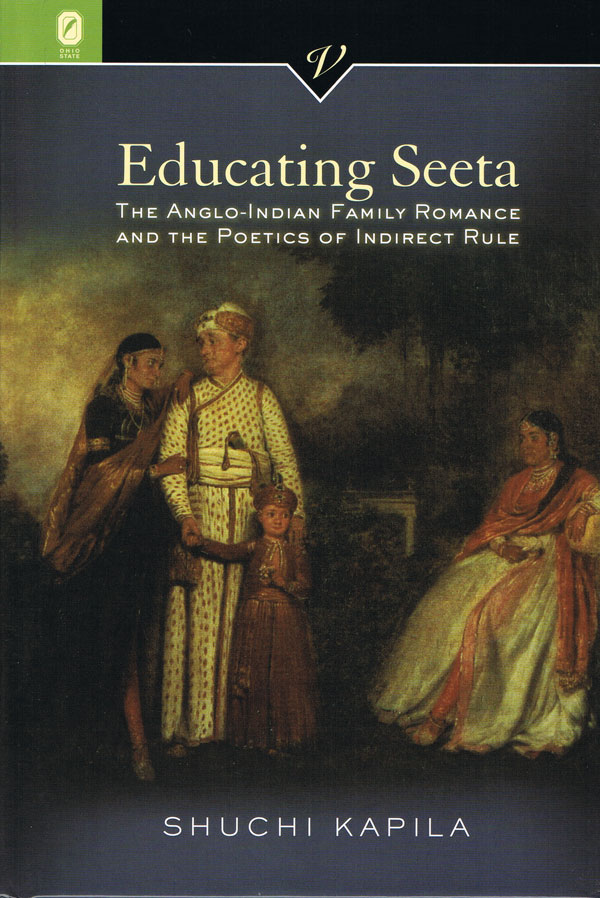Educating SeetaThe Anglo-Indian Family Romance and the Poetics of Indirect RuleShuchi KapilaVictorian Critical Interventions |
 4/30/2010 Literary Criticism/Asian/India; Literary Criticism/European/English 161 pp. 6x9  $39.95 cloth 978-0-8142-1126-7 Add cloth to shopping cart $14.95 CD 978-0-8142-9224-2 Add CD to shopping cart Shopping Cart Instructions Review/Change Shopping Cart & Check-out | |||
| Table of Contents |
“With all the words in postcolonial studies devoted to bemoaning the absence of the subaltern/female voice, Educating Seeta is refreshingly focused on helping to make these voices heard. Despite the difficulty and, often, the impossibility of actually retrieving the words themselves, Shuchi Kapila teases out Indian women’s resistance, as well as the unacknowledged hybridity of domestic life in interracial marriages, by reading between the lines of men’s writing in the colonial archives, Englishwomen’s writing in Anglo-Indian popular romances, and earlier scholarly works on colonial history and Anglo-Indian fiction.” —Josna Rege, author of Colonial Karma: Self, Action, and Nation in the Indian English Novel “Educating Seeta is a very valuable work in a field that has little scholarship published as of yet. Shuchi Kapila’s situating of the Anglo-Indian romance across genre boundaries—fiction, letters, biography, and government documents—and carefully at that, is exciting and will appeal to scholars and students of cultural studies as well as literature and postcolonial studies.” —Sukeshi Kamra, author of Bearing Witness: Partition, Independence, End of the Raj Even though Edward Said’s Orientalism inspired several generations of scholars to study the English novel’s close involvement with colonialism, they have not considered how English novels themselves were radically altered by colonialism. In Educating Seeta, Shuchi Kapila argues that the paradoxes of indirect rule in British India were negotiated in “family romances” which encoded political struggle in the language of domestic and familial civility. A mixture of domestic ideology and liberal politics, these are Anglo-Indian romances, written by British colonials who lived in India during a period of indirect colonial rule. Instead of providing neat conclusions and smooth narratives, they become a record of the limits of liberal colonialism. They thus offer an important supplement to Victorian novels, extend the study of nineteenth-century domestic ideology, and offer a new perspective on colonial culture. Kapila demonstrates that popular writing about India and, by implication, other colonies is an important supplement to the high Victorian novel and indispensable to our understanding of nineteenth-century English literature and culture. Her nuanced study of British writing about indirect rule in India will reshape our understanding of Victorian domestic ideologies, class formation, and gender politics.
| |||


 Shuchi Kapila
Shuchi Kapila